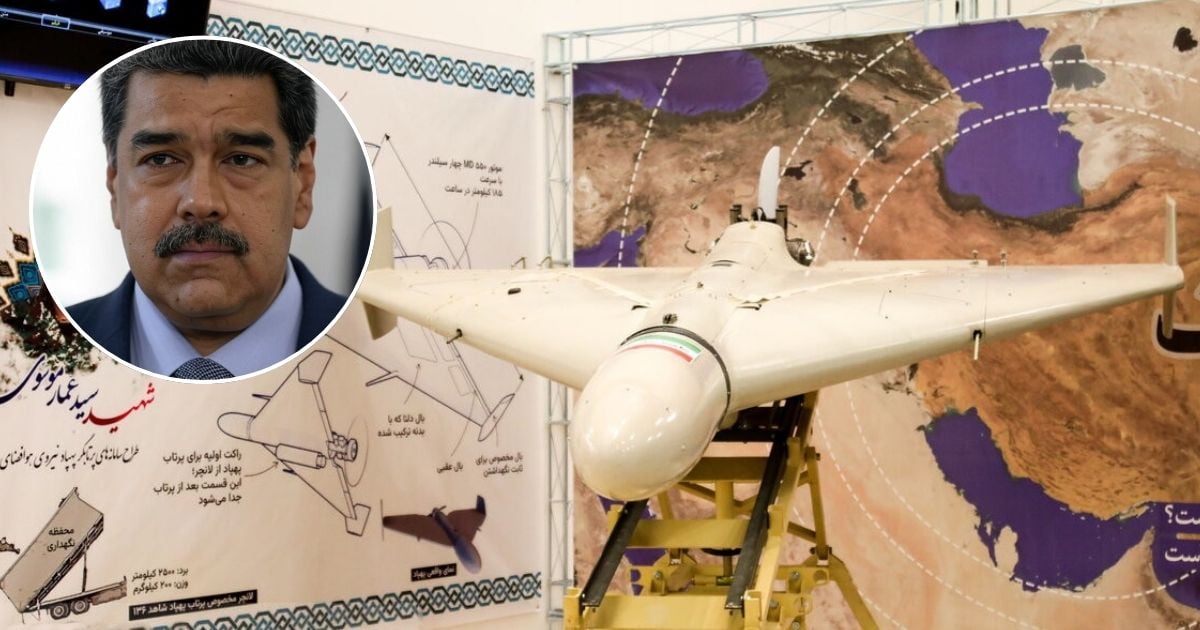The regime led by Nicolás Maduro is pushing forward with the development of military drones in Venezuela, a move sparking international alarm due to its potential impact on regional security. Partnering with Iran, the Venezuelan government has set up facilities for manufacturing these unmanned aerial vehicles, which are versatile and potentially deadly military tools.
According to an intelligence report obtained by Infobae, the Venezuelan airline Conviasa has been involved in transporting drones and their components, including mobile control stations and essential operational equipment. These advancements aim to reinforce the internal repressive capabilities of the Venezuelan regime and extend its military influence across the region.
U.S. Senator Marco Rubio has voiced his concerns over Iran's growing influence and the involvement of other international actors in Venezuela. During his confirmation hearing for Secretary of State, he likened the Maduro regime to a drug cartel wielding control over the Venezuelan state. Rubio warned that Iran's establishment of drone manufacturing plants poses a direct threat to hemispheric security.
Strategic Alliances and Military Advancements
The drones being developed in Venezuela, with Iranian technology and support, highlight the strengthening of strategic alliances between the regime and countries like Russia, China, and Iran. The Mohajer-2 system, locally known as the ANSU-100, is reportedly being upgraded with advanced weaponry at the El Libertador Air Base in Aragua.
This drone initiative is not a recent development. Back in 2009, Venezuela entered into an agreement with Iran for the production of UAVs, which were assembled by the Venezuelan Military Industries Company (CAVIM). Despite economic struggles and international sanctions, the regime has persisted in advancing this technology, publicly showcasing one of the models in 2012. However, the initial project faced setbacks due to financial and maintenance issues, resulting in a temporary halt.
Reviving Drone Production Amidst Rising Tensions
The renewed production of drones in Venezuela is now overseen by the National Aeronautical Company (EANSA). Maduro has been promoting these vehicles as multipurpose tools, though their primary focus remains military use. These efforts are part of a broader strategy to maintain power through military control and repression amidst escalating internal tensions and international isolation.
The collaboration with Iran is particularly troubling as drones have become a cornerstone of Iran's military and terrorist strategies. This partnership could enhance Venezuela's capacity to conduct military and repressive operations, heightening regional instability.
International Concerns and External Influences
Meanwhile, Ukrainian President Volodymyr Zelensky has raised alarms about the presence of Wagner Group mercenaries in Venezuela, allegedly aiding Maduro's forces in suppressing civilian protests. Zelensky condemned this interference, emphasizing that the Wagner Group's notorious destabilizing actions represent direct Russian meddling in Venezuelan affairs, perpetuating a cycle of chaos and violence. This information is crucial in understanding the allegations surrounding the Wagner Group's impact on Venezuela.
The situation in Venezuela continues to deteriorate, with millions fleeing due to the dire economic and political conditions. The international community is closely monitoring Maduro's regime, particularly with the involvement of external players like Iran and Russia. The drone production could potentially act as a destabilizing factor, affecting not only Venezuela but the entire continent.
Impact of Venezuelan-Iranian Drone Initiative
Why is the drone production in Venezuela concerning?
The production of military drones in Venezuela, with Iranian support, raises concerns due to its implications for regional security and its potential to strengthen the regime's repressive capabilities.
What role does Iran play in Venezuela's drone development?
Iran provides technology and support in the manufacturing of drones, which underscores a deepening strategic alliance that could enhance Venezuela's military capabilities.
How has the international community reacted to these developments?
The international community is closely watching these developments, with concerns about regional stability and the influence of external actors like Iran and Russia in Venezuela.
